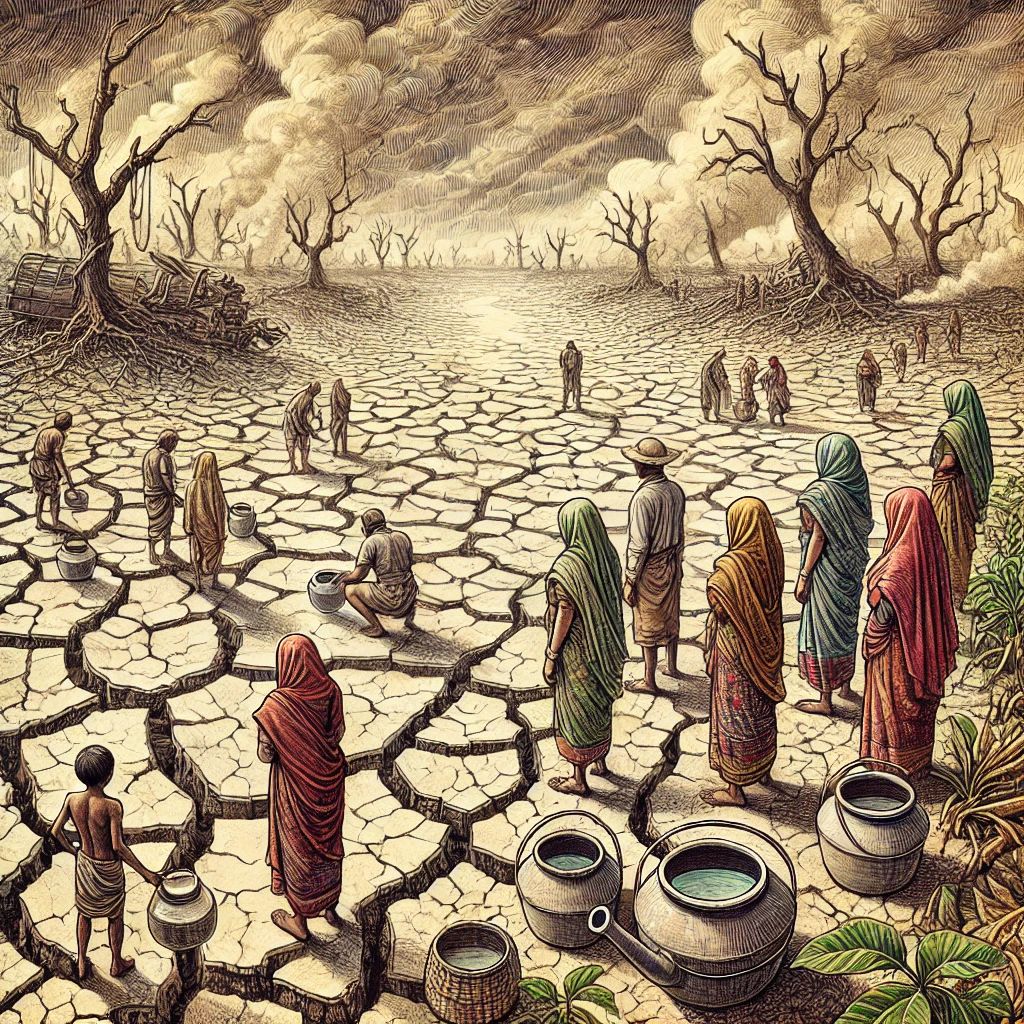South Asia’s water politics has long been fraught with disputes, but few are as pressing as the issue of Ganges water-sharing between India and Bangladesh. The Farakka Barrage, built by India in the 1970s, has remained a source of contention, with Bangladesh consistently arguing that it has never received its fair share of water. Now, as the 30-year Ganges Water Sharing Treaty signed in 1996 nears expiration in 2026, Dhaka is preparing to push for a fairer deal — one that secures the country’s agricultural and environmental future.
For Bangladesh, this is not just a diplomatic issue; it is an existential one. Water levels in the Padma River, which relies on the Ganges, have steadily declined over the years, with devastating consequences.
Entire regions are experiencing desertification, groundwater levels have plummeted, and agricultural productivity has taken a serious hit. These challenges are directly linked to India’s control of upstream water flow through the Farakka Barrage, a project initially justified as necessary for protecting the Kolkata port but which has left millions in Bangladesh struggling.
Opposition to the Farakka Barrage dates back decades. Maulana Abdul Hamid khan Bhashani, one of Bangladesh’s early political figures, warned that it would give India disproportionate control over a critical water source.
His fears proved well-founded. As Bangladesh has suffered the consequences, calls for the removal or restructuring of the barrage have persisted—not just from Bangladesh but even from within India, where water scarcity in West Bengal has also become an issue. Yet, successive Indian governments have shown little willingness to address the problem.
Bangladesh’s political landscape underwent a major shift in August 2024, when Sheikh Hasina’s government was replaced by an administration taking a markedly different approach to foreign relations.
Previously, Bangladesh’s leadership had often been seen as reluctant to confront India on contentious issues. But with new leadership in Dhaka, the country is now asserting itself more forcefully.
Against this backdrop, the upcoming negotiations over the Ganges water treaty are set to be highly significant. A Bangladeshi delegation has already visited Kolkata to analyze water flow data and prepare for talks. The key question is whether Bangladesh can secure a commitment from India for a fairer distribution of water — or whether it will once again be left short-changed.
While bilateral negotiations remain the preferred route, Bangladesh must be prepared for other avenues if talks fail to deliver a satisfactory outcome.
That includes leveraging international platforms such as the United Nations and global water governance bodies to bring attention to India’s unilateral control over the Ganges.
If necessary, Bangladesh could also explore legal action. Under international water law, India is not entitled to restrict the natural flow of a transboundary river without mutual agreement.
If negotiations do not yield a fair resolution, Bangladesh may take its case to the International Court of Justice (ICJ) or other international arbitration bodies.
To avoid repeating past mistakes, Bangladesh must push for key guarantees in any new agreement, including, a legally binding water-sharing mechanism that clearly defines the amount of water Bangladesh will receive, particularly during the dry season.
A reassessment of the Farakka Barrage to evaluate its long-term impact and consider alternative water management strategies. An independent monitoring system involving international experts to ensure transparency in water flow measurements and data sharing.
Investment in alternative solutions, including cross-border water conservation projects, to reduce dependence on the Ganges as a single source.
The stakes for Bangladesh could not be higher. Water scarcity, driven by reduced Ganges flow, threatens food security, economic stability, and the livelihoods of millions. With the current treaty set to expire, Bangladesh cannot afford another agreement that leaves it at the mercy of India’s upstream water control.
For years, the country has had little choice but to accept whatever India offered. But the shifting political landscape in Dhaka suggests a new approach — one that demands fairness rather than merely requesting it.
If negotiations fail to secure a just outcome, Bangladesh may have no option but to escalate the issue to international forums. The right to water is a fundamental one, and for Bangladesh, this is more than just a diplomatic battle—it is a fight for survival.


